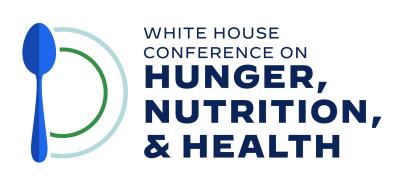The idea of food as being more than just “fuel” for the human body has gained traction as medical professionals, scientists and even insurers recognize that proper nutrition helps to prevent and treat conditions such as heart disease, stroke and Type 2 diabetes, while simultaneously lowering health care costs.
This holds especially true for senior citizens, patients recovering from hospital stays and individuals living with chronic illness.
Reducing diet-related illness
An unhealthy diet is responsible for more deaths than any other risk factor in the world, according to the Global Burden of Disease study.
While many Americans have made positive lifestyle changes, such as exercising and quitting smoking, there has been a steady rise in health risk factors that can be addressed with good nutrition, according to the Centers of Disease Control and Prevention (CDC) and Mental Health Services Administration. Consider these statistics:
- Approximately 33% of all adults were considered overweight in the years leading up to and including 2021
- In the same timespan ending in 2021, the percentage of adults with diabetes increased from 7.03% to 9.62%
- In 2020, more than 670,000 deaths in the United States had hypertension as a primary or contributing cause; and one in every five deaths was a result of heart disease
To that end, heart disease is the leading cause of death for men and women in the United States, regardless of ethnic background, according to the CDC. Unhealthy dietary and lifestyle choices are linked to high blood pressure, high cholesterol, diabetes and obesity, all putting people at higher risk.
Moreover, almost 20% of heart disease, stroke and diabetes expenses are due to a poor diet, adding $50 billion a year to health care costs, according to a study funded by the National Heart, Lung, and Blood Institute.
Good nutrition proven to improve health outcomes
To reduce the risk of diet-related disease, Americans need to make every bite count by eating a nutritious diet low in processed foods, sugar, saturated fats and sodium. Home-delivered meals have been shown to help improve health outcomes and total cost of care. A national expansion of medically tailored meal programs for those with diet-sensitive conditions and activity limitations could annually help avert 1.6 million hospitalizations and save insurers a net amount of $13.6 billion, according to a Tufts University study.
This concept of food as medicine is more widely adopted in the broader community every day, though it has been long understood as a means to manage health. Food as medicine is the recognition that diet is critical to building, maintaining and restoring health. By prioritizing food and diet, it is possible to prevent or reduce illness, or even reverse an existing condition.
“Food is not just for prevention – it can be used for treatment for people with debilitating conditions like heart failure, uncontrolled diabetes, HIV, and cancer. With medically tailored meals, patients are treated using the power of food and put on a steady path toward healing,” said Dariush Mozaffarian, Jean Mayer Professor of Nutrition at the Friedman School of Nutrition Science and Policy, Tufts University.
Meanwhile, there is an increased focus on forthcoming policy changes that might affect how health plans support members with complex diet-related chronic disease. As a result of these shifts, medically tailored meals may become more widely available to those who need them.

For example, the White House Conference on Hunger, Nutrition and Health held September 28, 2022, — the first such event since 1969 — had an ambitious stated goal of ending hunger by 2030, the White House conference captured the attention of a broad cross section of U.S. policymakers, public and private sector organizations, and other food equity advocates.
From the conference, the administration said it will encourage Congress to pass legislation for a pilot test of medically tailored meals for the original Medicare (fee-for-service) population, and work with states to test Section 1115 Demonstration waivers for medically tailored meals in the Medicaid population. If medically tailored meals for the original Medicare (fee-for-service) population are adopted as policy as the Section 1115 Demonstration waivers have, both options would expand medically tailored meals to most people covered by a government payer.
Many health plans and organizations are also exploring ways to address health inequities and support members that have chronic conditions. They’ve recognized that social determinants of health (SDOH) — the factors that drive inequities in health care that CMS is targeting — are the foundation of providing whole-person care. For example, CMS is now requiring that all Special Needs Plans screen for SDOH, including food insecurity. With that comes new HEDIS measures for health plans:
- Social Need Screening and Intervention: To assess and address food, housing and transportation needs of their members
- Emergency Department Visits for Hypoglycemia in Older Adults with Diabetes: ID older members with diabetes and measure ED visits and implement preventive interventions
Additional resources
Food as Medicine: What Health Care is Doing and What is Working
Our free white paper takes a deeper look at the food as medicine concept, health equity and chronic disease issues, and approaches from public and private sectors. You will also learn how our nutritious home-delivered meals can help improve health outcomes while advancing health equity.
Improving Outcomes and Star Ratings Through Food and Nutrition Benefits Design
In this guide for Medicare Advantage Plan product and clinical teams discover how to maximize your Medicare Advantage health plan design by incorporating home-delivered meals benefits.
To learn more about how the Mom’s Meals team can help you support your members and clients, please contact us.



